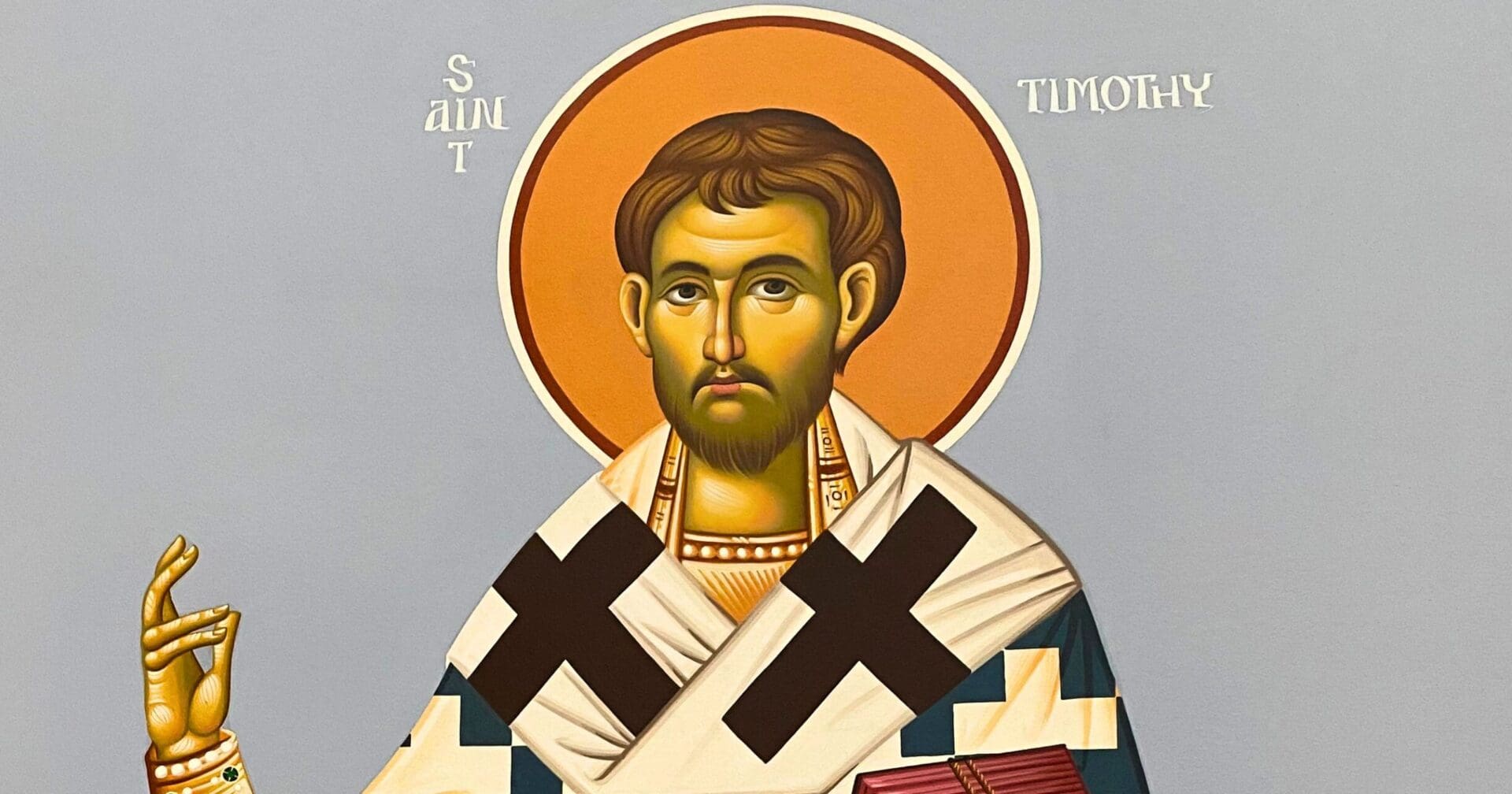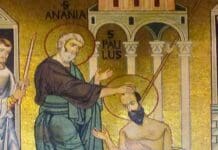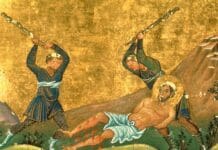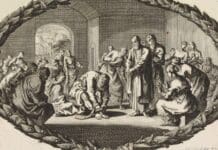Saint Timothy, cherished disciple of Saint Paul, hailed from Lycaonia, likely from the city of Lystra. Born to a Gentile father and a Jewish mother, Eunice, Timothy was raised in a household where faith was central, a virtue shared with his grandmother, Lois. Both women were early adopters of Christianity, earning praise from Saint Paul for their steadfast faith. From a young age, Timothy immersed himself in the holy scriptures, laying a firm foundation for his future spiritual journey.
In 51 AD, when Saint Paul brought his teachings to Lycaonia, the local community of Iconium and Lystra spoke highly of Timothy. This glowing recommendation came at a pivotal moment for Paul, who had recently parted ways with Saint Barnabas. Recognizing Timothy’s potential, Paul chose him as a fellow laborer in his missionary works. However, before they set off, Paul circumcised Timothy in Lystra. This act wasn’t about adhering to the old Jewish customs, which had lost their obligatory status after Christ’s death, but rather about tactful cultural navigation. While Paul firmly opposed the compulsory nature of these rituals, as demonstrated by his refusal to circumcise the Gentile-born Titus, he chose a different path for Timothy. Being of Jewish lineage on his mother’s side, Timothy’s circumcision was a strategic move to facilitate his acceptance among Jewish communities and to dispel any notion of Paul’s opposition to Jewish traditions. This decision was lauded by Saint Chrysostom for its wisdom and compassion, highlighting Timothy’s readiness to embrace it for the greater good.
With the circumcision completed, Paul officially inducted Timothy into his ministry through the laying of hands, acknowledging Timothy’s exceptional virtues despite his youth. Paul held Timothy in the highest regard, seeing him as not just a disciple or son, but as a brother and partner in his mission. Timothy’s deep alignment with Paul’s vision and heart was unique, a bond celebrated by Paul in his communications with the Philippians. Timothy’s entry into ministry wasn’t just marked by Paul’s endorsement but also by prophecies that spoke of his future impact.
Their journey together was extensive and challenging. After leaving Lystra, they traversed Asia and ventured into Macedonia, spreading the word in cities like Philippi, Thessalonica, and Berea. In Berea, intense persecution from the Jews forced Paul to move on, but he left Timothy behind to strengthen and support the fledgling Christian community. When Paul reached Athens, he summoned Timothy but soon sent him to Thessalonica to offer solace and encouragement to the persecuted believers there. Timothy’s successful mission was detailed in his subsequent return to Paul in Corinth, prompting Paul’s first letter to the Thessalonians.
The mission continued with Paul heading to Jerusalem and then to Ephesus, where he spent two fruitful years. Planning a return to Greece, he dispatched Timothy and Erastus to Macedonia to prepare the believers for his coming and to organize the collection of alms for the Christians in Jerusalem. Throughout these journeys, Timothy’s dedication and sacrifice, leaving behind his home and family to share in Paul’s hardships, were testament to his unwavering commitment to spreading the Christian faith.
Photo credit: Moralmonke via Wikimedia Commons


















St. Titus, pray for all missionaries.
St. Timothy pray for us
Prayer to Saint Timothy
Dear Saint,
well known for your gentleness,
you were a most faithful disciple of
Saint Paul, and like him,
traveled much to bring
the Good News to all people.
The Letters Paul wrote to you reveal your zeal
and inspire us with confidence in you.
You too were cast into prison
and you too gave your life for Christ.
So with confidence we dare to ask,
please obtain relief for
(name of sufferer),
if it be God’s will.
Amen.
Thank you